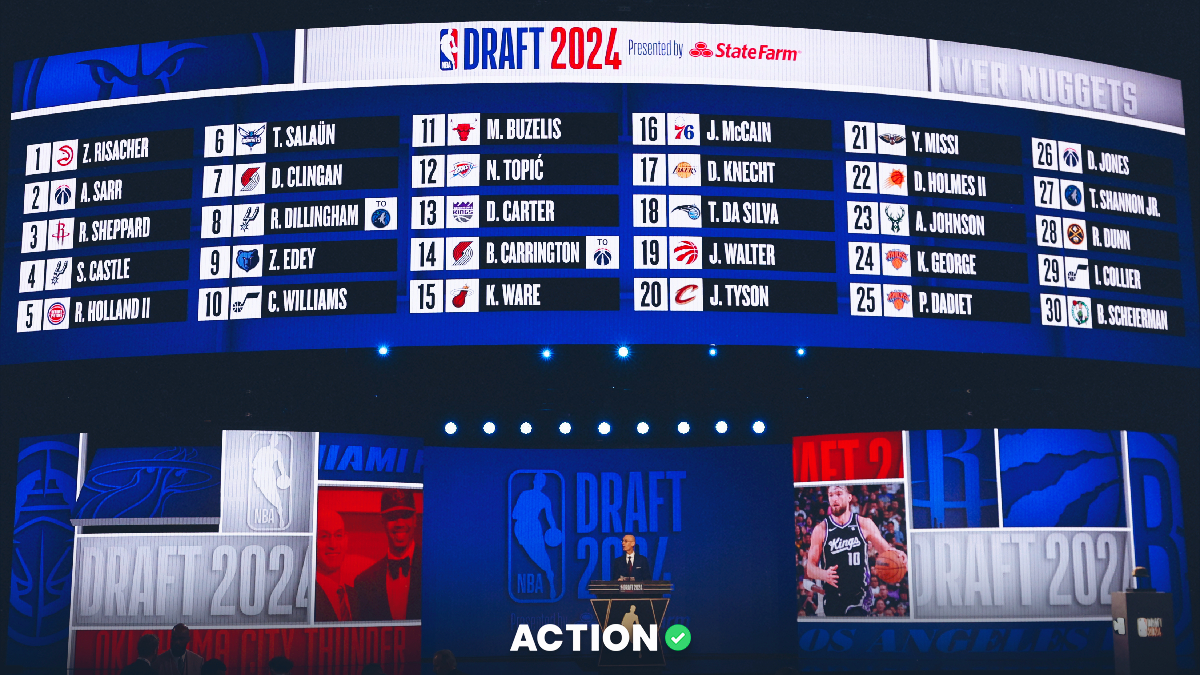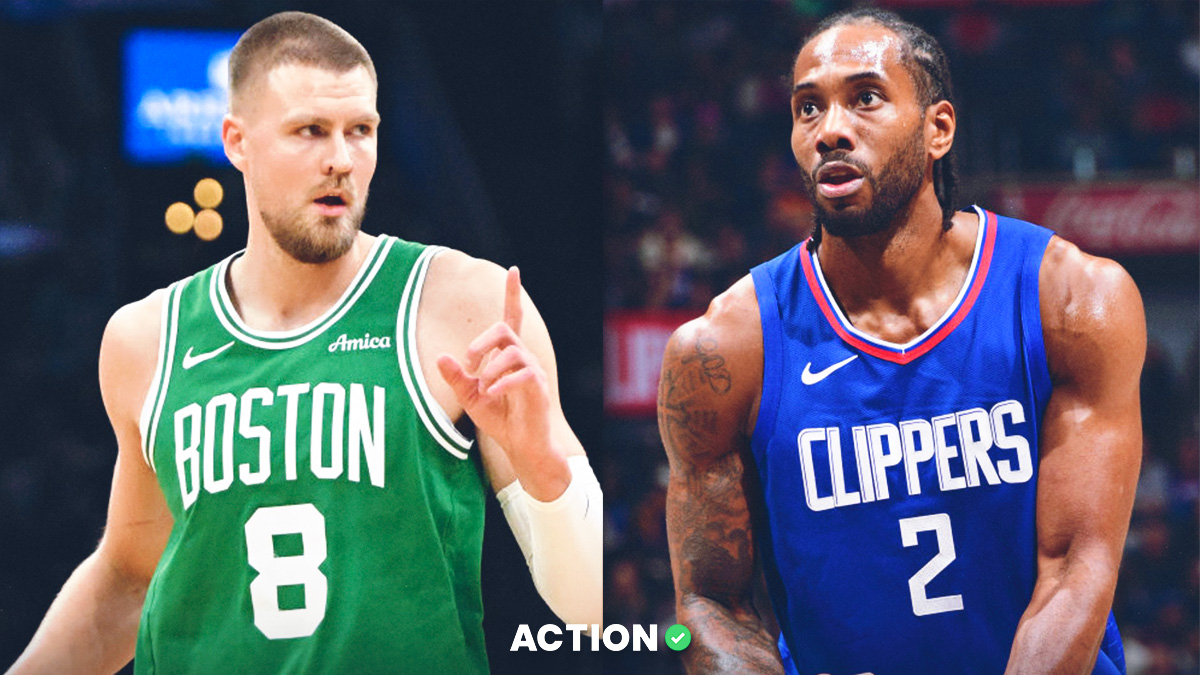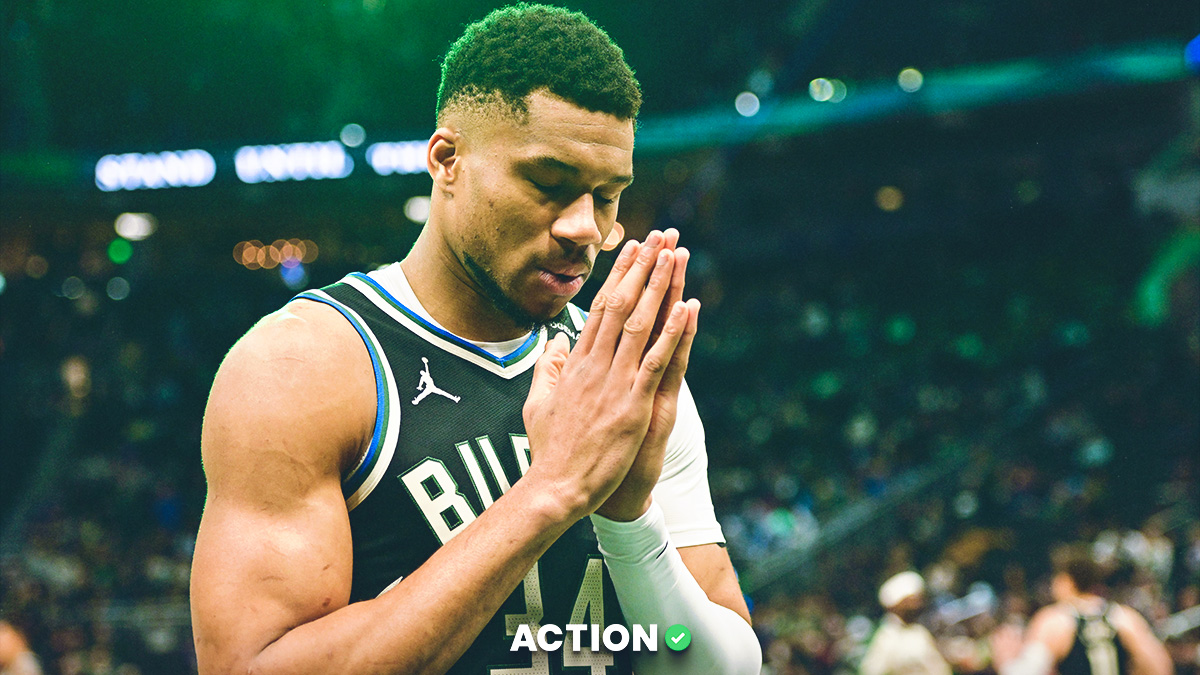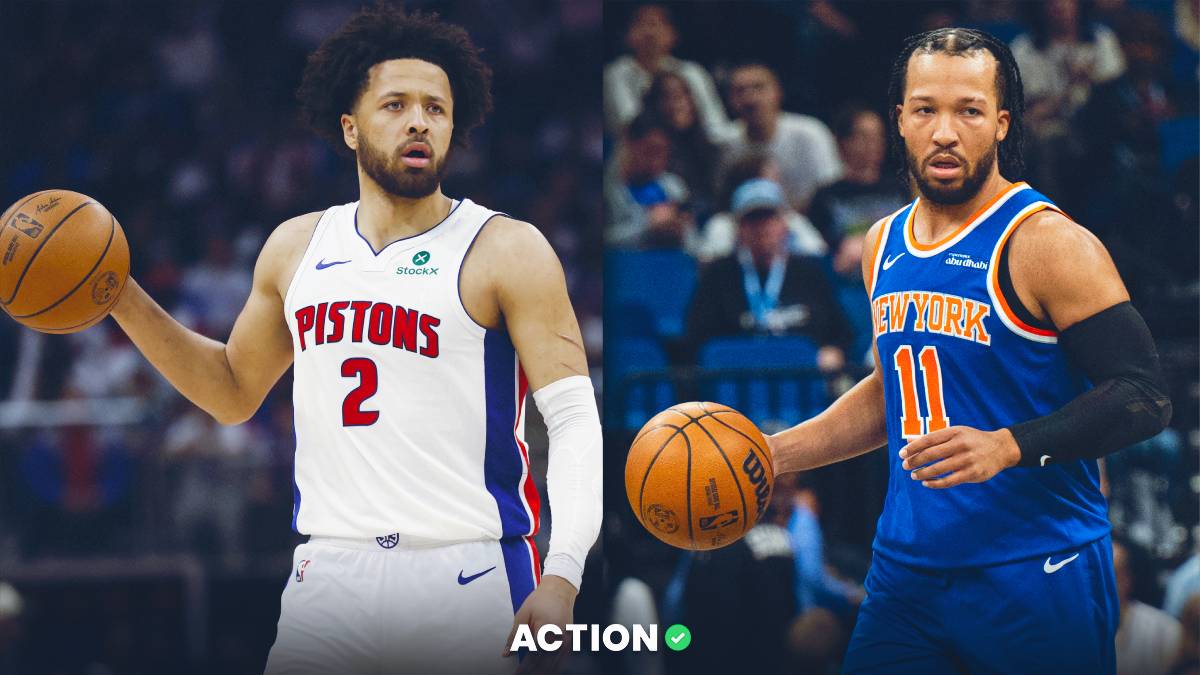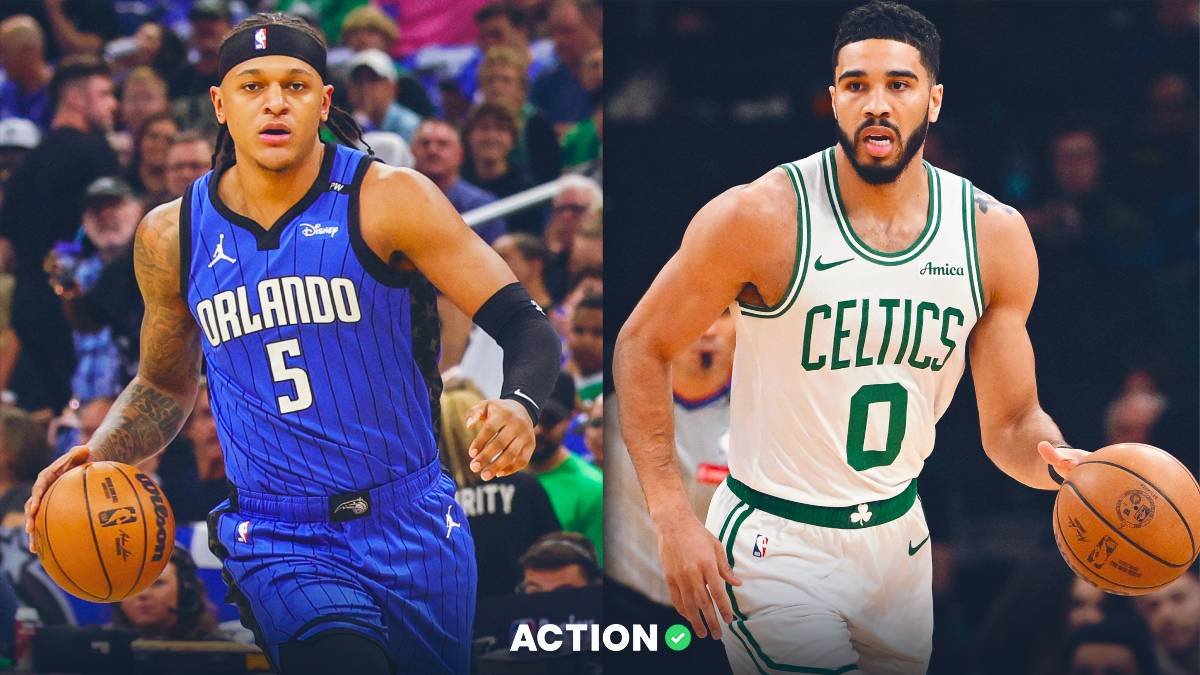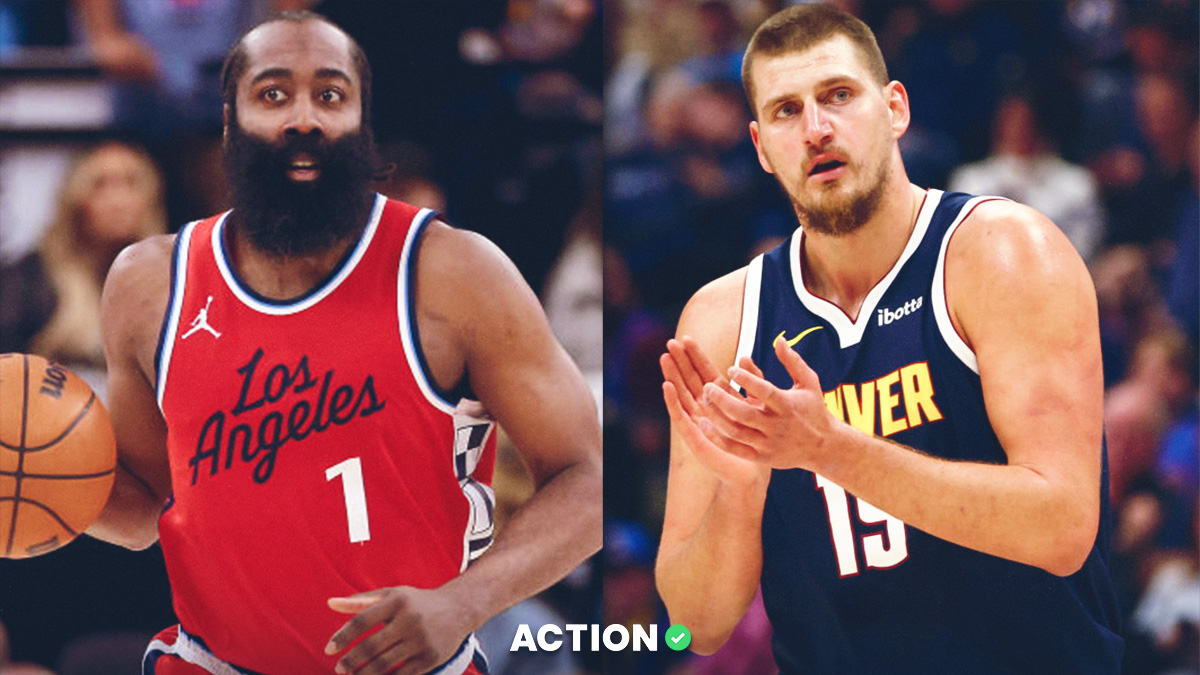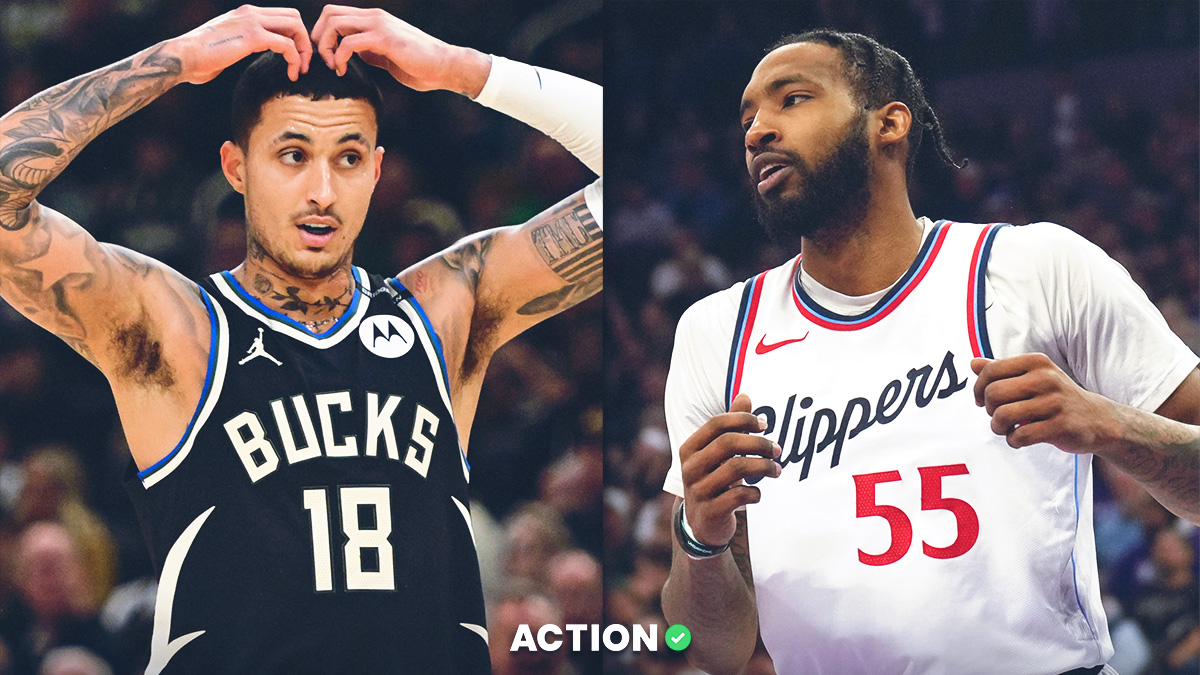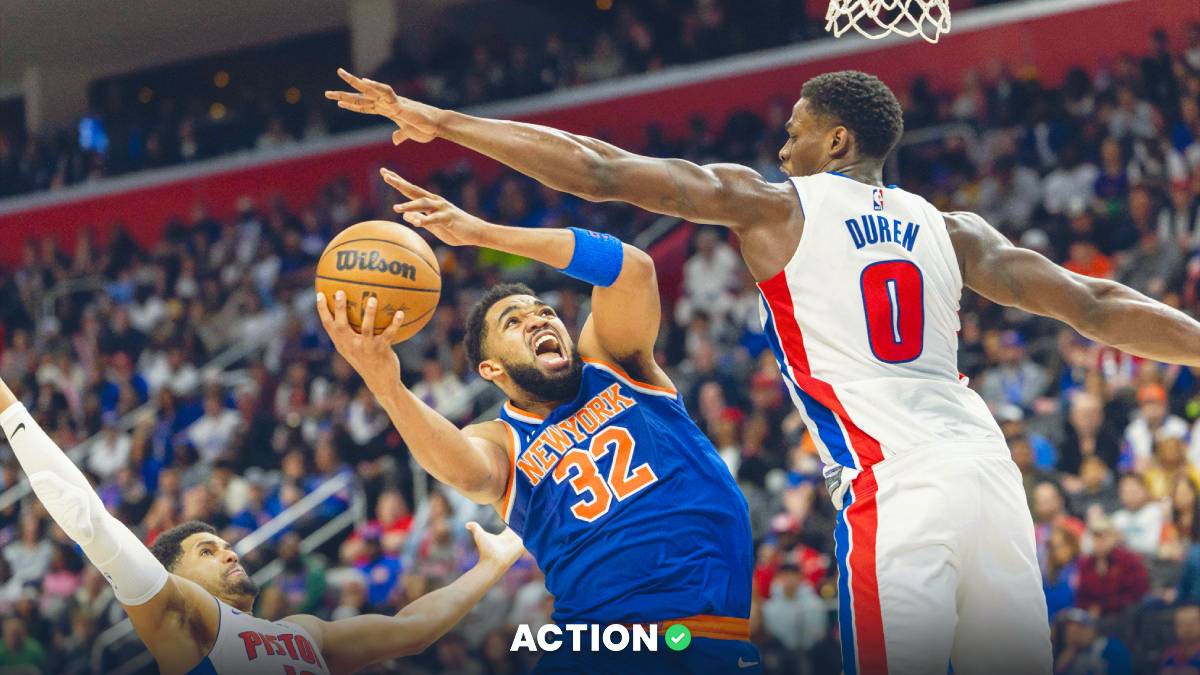The topsy-turvy 2024 NBA Draft is in the books.
All 58 draft picks have been made, and it's time to choose some winners and losers — at least as best as we can by evaluating a bunch of 19- and 20-year-olds on new teams.
You know the drill. I'll name three winners, three losers, and a handful of other notables. Let's review the draft.
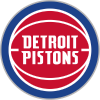
Winner: Detroit Pistons
The Pistons are in the wilderness. Detroit has won 14, 17, 23, 20, and 20 games the last five seasons — less than 100 combined in five years — and have only made the playoffs twice in 15 seasons without winning a series.
It's been ages since the Pistons have even had a franchise player, unless you're a big Andre Drummond fan. Cade Cunningham was supposed to be that for Detroit, and maybe he still will be, but these three years haven't gone well. Ausar Thompson and Jalen Duren are promising but not franchise guys. Jaden Ivey hope is fading.
Maybe Ron Holland can be that guy.
Holland might well have the most upside in the entire draft. He's not the best player in the draft right now, an incomplete project that will take time, and he'll need new Pistons assistant coach Fred Vinson to do his magic transforming his shot, but Holland has all the tools of a prototypical star NBA wing.
The Pistons also absorbed Wendell Moore to move up in the second round, getting a second-draft crack at a young player and earning a chance to pick up Swedish-Senegalese Bobi Klintman near the top of the second round. Klintman is raw but represents another swing on a wing that flashes size, shooting, fluidity, creation, and defensive ability. He's an unknown, but the upside pops.
Holland and Klintman don't necessarily "fit" Detroit's roster, but that's okay. This team should be star hunting, and then you build the roster around the stars later. I had Holland No. 2 and No. 9 on my board, and Detroit effectively got them at picks No. 5 and 53. That's just good business.
The Pistons are my biggest winner of the draft. This is a huge influx of talent for a team desperately in need of it.
Loser: Atlanta Hawks
Most of the time it's easy to pencil in the team with the No. 1 pick as an obvious draft winner, but this was not most drafts.
In the end, there really wasn't a buzzy No. 1 pick. Any choice at the top was going to leave fans feeling a bit cold, especially a year after Victor Wembanyama. But did anyone other than Atlanta have Zaccharie Risacher at the top of their board? Even the glut of big boards and scouting never really quite seemed as high as just the Hawks were on Risacher the whole time.
Risacher is pitched as a big, do-everything, two-way wing, but I wrote about why I'm skeptical about each of those three descriptions. Risacher has a disastrous athletic profile, a questionable shot, and serious questions about his body and strength. I didn't even rate him as a lottery pick, and even the favorable ratings considered him a 3-and-D type prospect. No matter how you slice it, that's a tough pitch.
Later in the draft, the Hawks sold low on A.J. Griffin, presumably to make room for Risacher. Why? This is a rebuilding team that should be looking at every young player possible, and I'm not even convinced Risacher is a better prospect than Griffin. The Hawks don't know which direction they're going right now.
It's not Atlanta's fault that there really wasn't a great No. 1 pick available, but this is not how we should feel about a team with the No. 1 pick coming out of a draft.
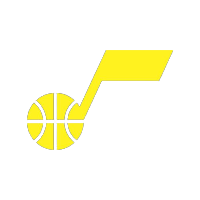
Winner: Utah Jazz
For much of this draft season, both Isaiah Collier and Kyle Filipowski were considered potential top-10 picks.
Collier is a big, strong guard who plays an old-school game and is at his best with the ball in his hands, and he was a potential No. 1 pick at the start of the campaign. Filipowski is a classic stretch four with a sweet shot and a rounded offensive game, plus a winning Duke pedigree to go with it.
The Jazz had the No. 10 pick in the draft, and for much of the year, it would have been perfectly reasonable for Utah to walk away from this draft with either Collier or Filipowski as its top pick.
Well, the Jazz got both of them — and didn't even use the No. 10 pick on either. Utah got two of the steals in the draft using Nos. 29 and 32 on that pair, and it also used that No. 10 pick on a wing I had top five in the class, Cody Williams. He's the younger brother of OKC's Jalen Williams and looks like a ready-made wing prospect with star potential if he can add a reliable shot to his deadly driving and finishing.
For a rebuilding team in need of talent, it's a heck of a haul adding Cody Williams, Collier, and Filipowski.
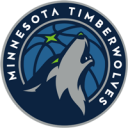
Loser: Minnesota Timberwolves
Many analysts listed the Timberwolves among their winners, but I'm making them the biggest loser in the draft, and it starts with bad process.
This was widely regraded as the worst draft in years. How do you trade away control of multiple future firsts — the only real assets left in an already empty war chest — to move up for one of the least valuable top-10 picks in memory, a pick that would probably be outside the lottery almost any other year?
That's just bad process no matter how you slice it, especially so for a team that just fired its last real bullet. The team has now invested heavily in Rob Dillingham, billed as a point guard despite a clear lack of playmaking ability for teammates, mostly because he's such a small player that he can really only defend opposing point guards — if you can even call it defense.
Dillingham looks much more like a future sixth man gunner off the bench, though he clearly has electric scoring upside, but that could put him behind Anthony Edwards instead of next to him, and it could be difficult for Dillingham to get real developmental time as a slight rookie playing for a top defensive contending team.
Minnesota was creative adding a $5-million player about the only way it could here, but to do so, it then had to give up the No. 37 pick to get off Wendell Moore's salary, dumping a player it took in the first round just two years ago and costing itself a guy I marked as a top-10 talent in Bobi Klintman, who went at that pick.
Maybe Dillingham is a future star, and then none of this will matter. But this is just bad, bad, bad process all around, and the process is about the only thing we can judge clearly right after the draft.
Winner: Washington Wizards
Any team with three first-round picks really ought to be a winner, but credit the Wizards for getting those picks and for using them to add a flurry of young talent to a roster in overhaul.
Alex Sarr was as close as we got to a consensus No. 1 pick in the draft. He wanted to play for Washington and got his wishes, now partnering with another French teammate in Bilal Coulibaly.
The Wizards also sold high on Deni Avdija, turning a role player into multiple firsts and using one of them immediately on Bub Carrington, one of the top sleepers in the draft and one of its youngest prospects. Then Washington added Miami's Kyshawn George later in the first, one of the top shooters in the draft.
What do all those players have in common? They're all very young and they're big, long athletes, leaving plenty of size and all sorts of runway as Washington digs in for a long rebuild.
We'll see which of these picks hit, but there's finally some direction in Washington, and that alone is a big relief.

Loser: Anyone who tricked themselves into watching Round 2
The NBA split the draft into two days for the first time, then moved the second round to Thursday afternoon because of the presidential debate.
If you decided to tune in for Round 2… sorry.
It's a tough sell to tune in on Thursday afternoon in the middle of a work day to see a bunch of names you've never heard of get drafted in the worst draft in at least a decade. Even the presumed Bronny James storyline was cooked early on as ESPN's panel made it clear that he was headed toward the Lakers at No. 55 as expected all along.
Somehow, we even got a second version of a Green Room, with a handful of prospects still coming out to grab a hat and get a quick interview in, but unless you enjoyed meeting a bunch of players you may never see again, ESPN just didn't have much to offer.
What's the opposite of must-see TV? Whatever it was, that's what the NBA gave us with an independent second round.
A Few More Thoughts for the Road
- Winner: Bulls. Are the Bulls finally going young? Local kid Matas Buzelis was overwhelmed with tears getting to stay home in Chicago, and he was a serious bargain at No. 11, a talented wing that could've easily gone in the top five and one who should step into a starting spot quickly. With Buzelis and Josh Giddey now in tow, there's finally a faint outline of the team to come in Chicago.
- Loser: Hornets. Charlotte made the shock pick of the draft, eschewing trade offers at No. 6 and staying put to stun the crowd with the selection of French mystery man Tidjane Salaun. He's one of the least well-known prospects in the draft, incredibly raw and incomplete. I didn't even give Salaun a first-round grade, and he's a tough sell as a top-six pick for a franchise badly lacking direction.
- Winner: Grizzlies. Not many expected Zach Edey to land in the top 10 (he was +750!), but it's hard to imagine a better landing spot for a guy with the offensive rebounding of Steven Adams and the post game of Jonas Valančiūnas. Memphis badly needed a big center to replace those departed players, and Edey's limitations are less of a concern with Jaren Jackson Jr.'s versatility in tow to close games anyway.
- Loser: Blazers. You may not be as skeptical of Donovan Clingan as me, but it's tough to get excited about another big investment in a center after Portland just traded for both Deandre Ayton and Robert Williams III. The Blazers also traded multiple draft picks for role player Deni Avdija, a questionable decision for a team that's in rebuilding mode. Portland doesn't know whether it's coming or going.
- Winners: Nuggets and Suns. Denver and Phoenix made a first-round deal that benefited both teams. The Nuggets badly coveted DaRon Holmes II and got their man, a versatile big who should provide some real depth behind Nikola Jokić, and the Suns got an elite wing defender in Ryan Dunn and added a couple picks for their efforts. Both Holmes and Dunn could feature deep in the playoffs next spring.
- Loser: Bucks. Milwaukee is in win-now mode with Giannis Antetokounmpo and Damian Lillard, and the team is only getting older. The Bucks are badly in need of depth and a youth movement, and yet they used the No. 23 pick on A.J. Johnson, a developmental project with precious little chance to contribute to this core's window. Just another missed opportunity for a presumed title contender.
- Winner: Lakers. Los Angeles stayed put at No. 17 and got one of the best and most polished scorers in the draft in Dalton Knecht, a possible top-five pick who slipped due to his age, 23. But that's perfect for the Lakers, who get the exact sort of movement shooter that LeBron James has loved playing with in the past. Add in Bronny James in the second round, and the Lakers got exactly what they wanted in this draft.


